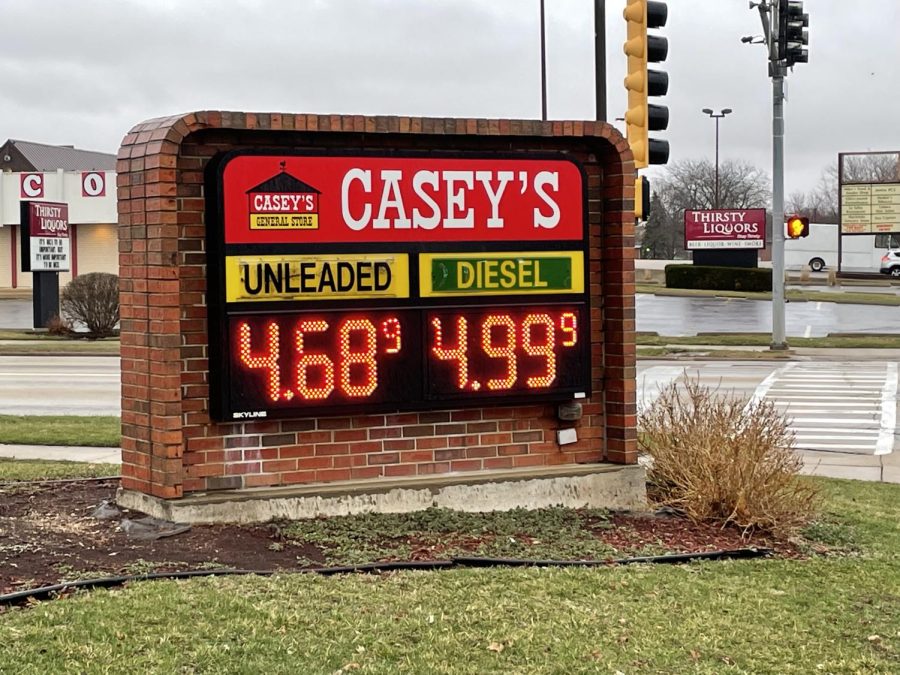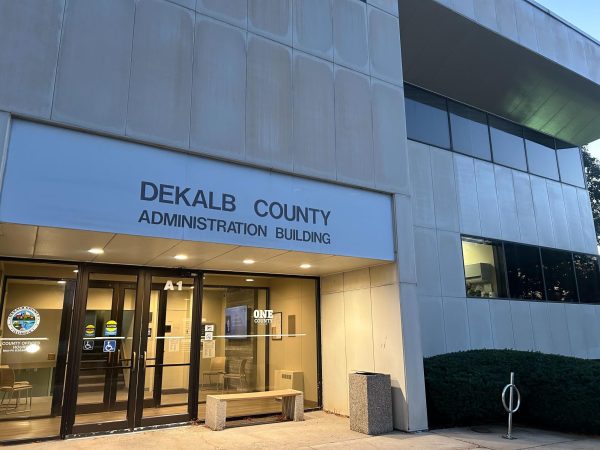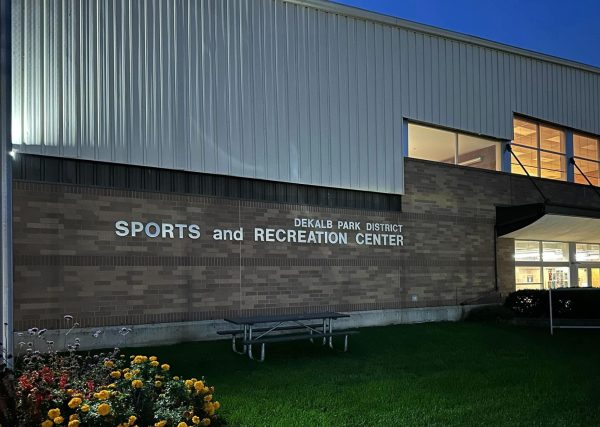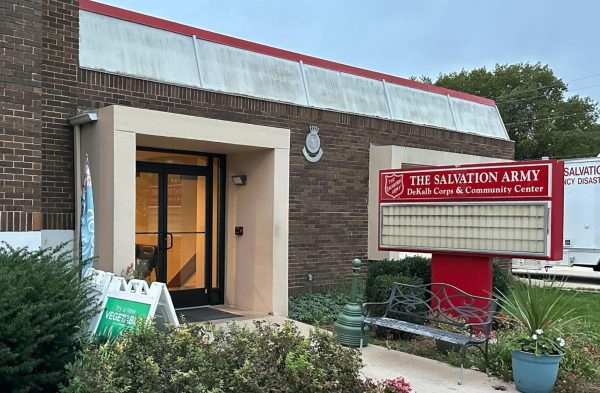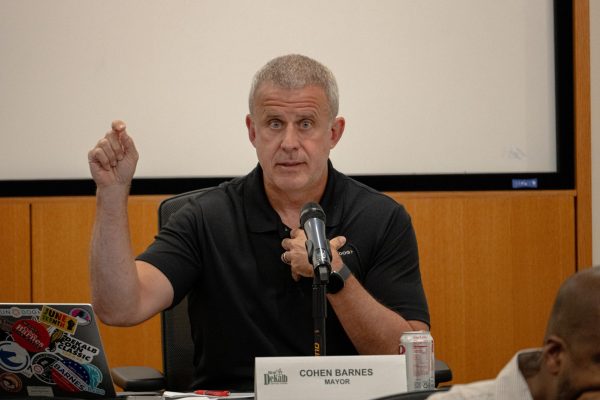Rising gas prices cause concern for students
A difference of $
DeKALB― Students and faculty have mixed reactions when it comes to rising gas prices. The increase in the price of gas has increased the need for public transportation and has especially impacted commuter students.
By the last week of February, gas prices were already at a national average of $3.60 per gallon and prices continue to rise, according to data from the US Energy Statistics Department,.
The average gas price in DeKalb is $4.60, and all DeKalb gas stations are inching closer to $5 per gallon, according to data from GasBuddy. The DeKalb average is higher than the state average of $4.49, according to AAA.
The jump in gas prices is largely due to the ongoing conflict in Ukraine, paired with an embargo on Russian oil imports, according to Collin Eaton, a reporter who routinely covers oil, gas and energy for the Wall Street Journal. The reduction in global oil supplies has raised costs for customers.
Seeing the effects of high gas prices in the classroom
“It’s a lot more expensive to buy a gallon of gas than it was a month or two ago,” said Carl Campbell, professor and department chair of NIU’s economics department.
However, Campbell said that the price of gas hasn’t directly impacted him as much as it could have, since he walks to and from work, but has begun to see the effects in the classroom.
In Campbell’s classes, fewer students have been late since gas prices have increased. Campbell said this could be due to the fact that fewer students are driving, so more parking spaces are available.
“Once the war is over, I think prices will go down,” Campbell said.
Student reactions to high gas prices
To avoid paying high prices, third and fourth year theatre design and technology students Ali Westendorf and Caitlyn Kern have become more inclined to carpool or use public transportation.
“A lot of people have been carpooling, using the buses more often and walking since it’s warmer,” Kern said. “I use public transportation mostly, but I do get driven around by friends and family sometimes, so it does put a burden on them.”
Westendorf has also committed to carpooling for the time being.
“I only commute from the edge of campus, but I don’t normally drive my own car,” Westendorf said.
Still, the cost for those who have to drive is still high.
“My car requires premium gas, so I complain (about gas prices),” Westendorf said.
DeKalb residents can expect to pay over $5 per gallon for premium gas, nearly 70 cents more than regular gasoline, according to GasBuddy projections.
Kern said that she’s glad she doesn’t own a car due to the current expense that comes with filling it up, but that she’ll offer friends and family gas money when they need it.
Students with even further commutes have also expressed their concerns about gas prices.
“I commute from Carpentersville, (which is) roughly an hour away,” George Lopez, fourth year mechanical engineering major said. “It costs me $55 per tank compared to $35 per tank. I generally fill my tank twice a week since I come to campus Monday through Thursday.”
With a $20 increase in his fuel expenses, Lopez said he doesn’t have the money to spend on other things like he normally would.
“There are many factors that need to be addressed to lower gas prices, and I don’t have the power to make a difference,” Lopez said. “I feel helpless and just conformed to the new normal.”


